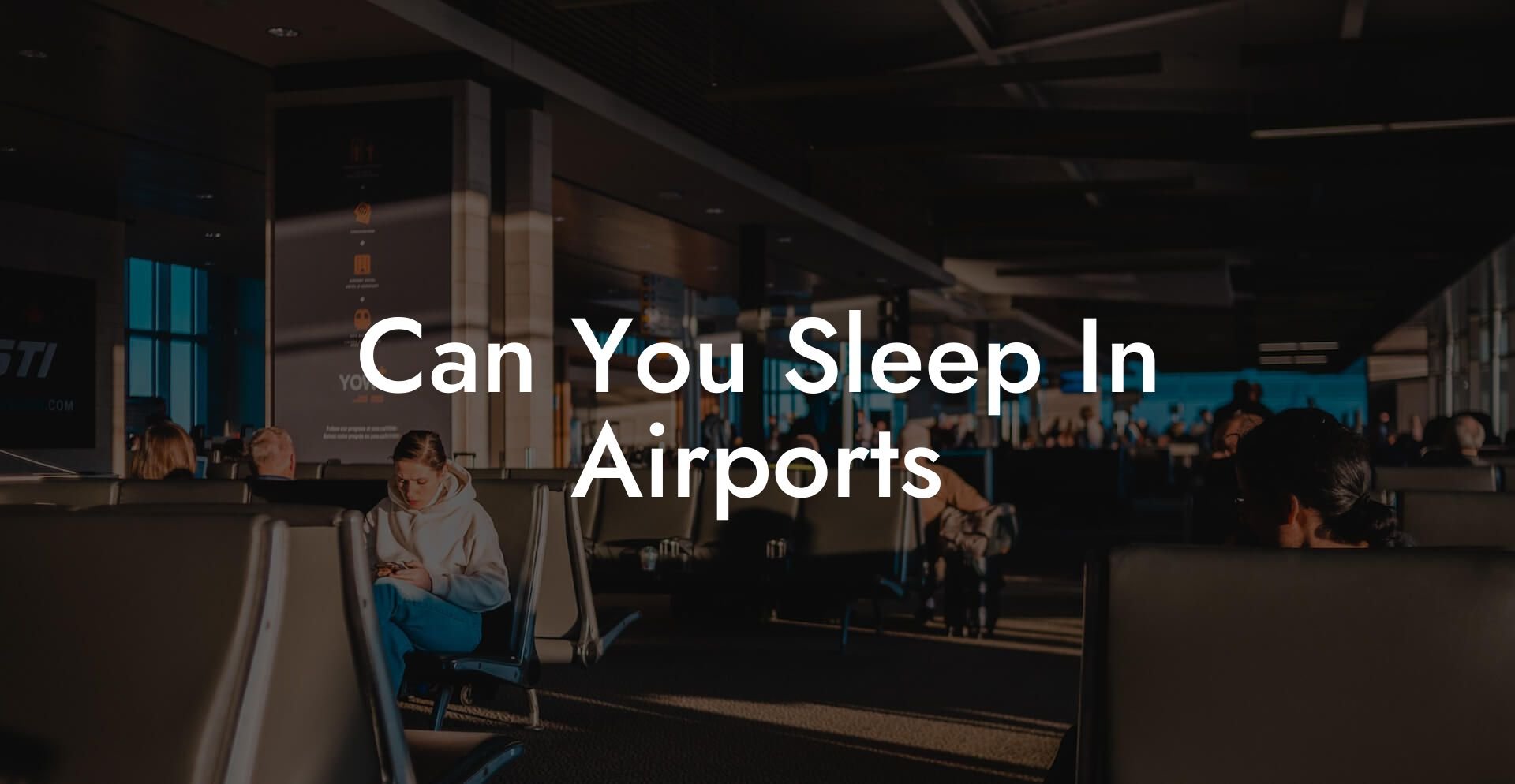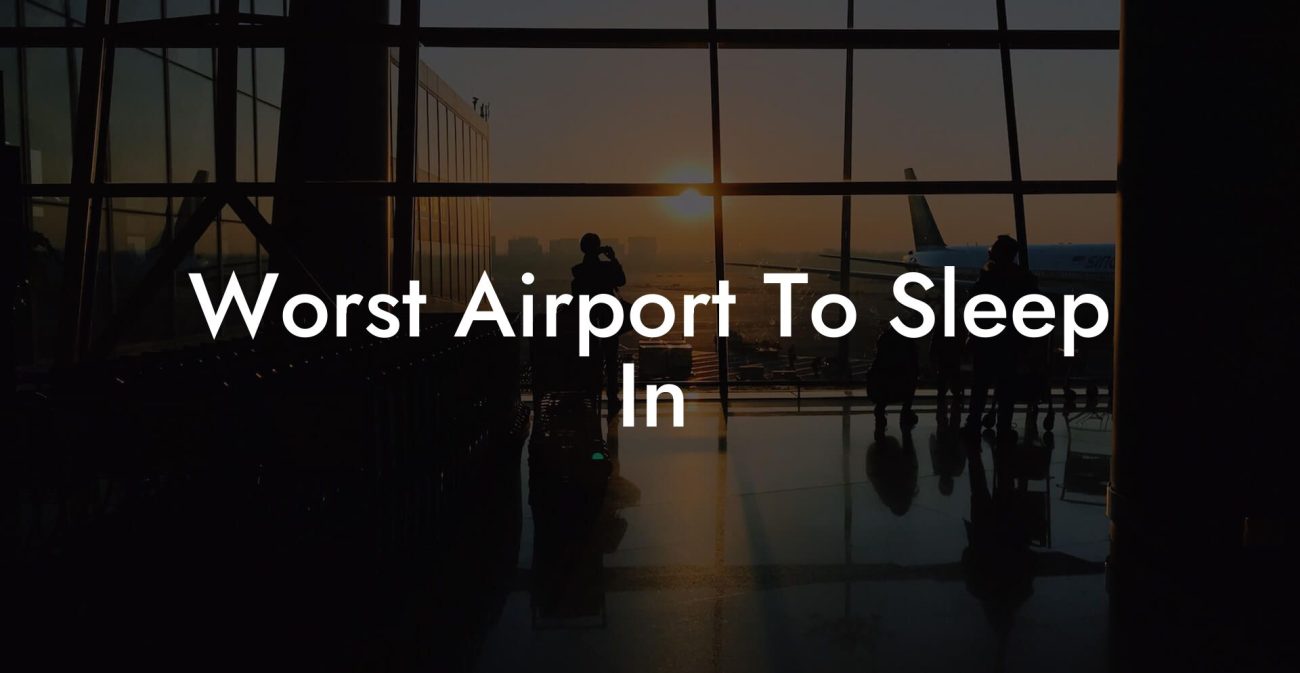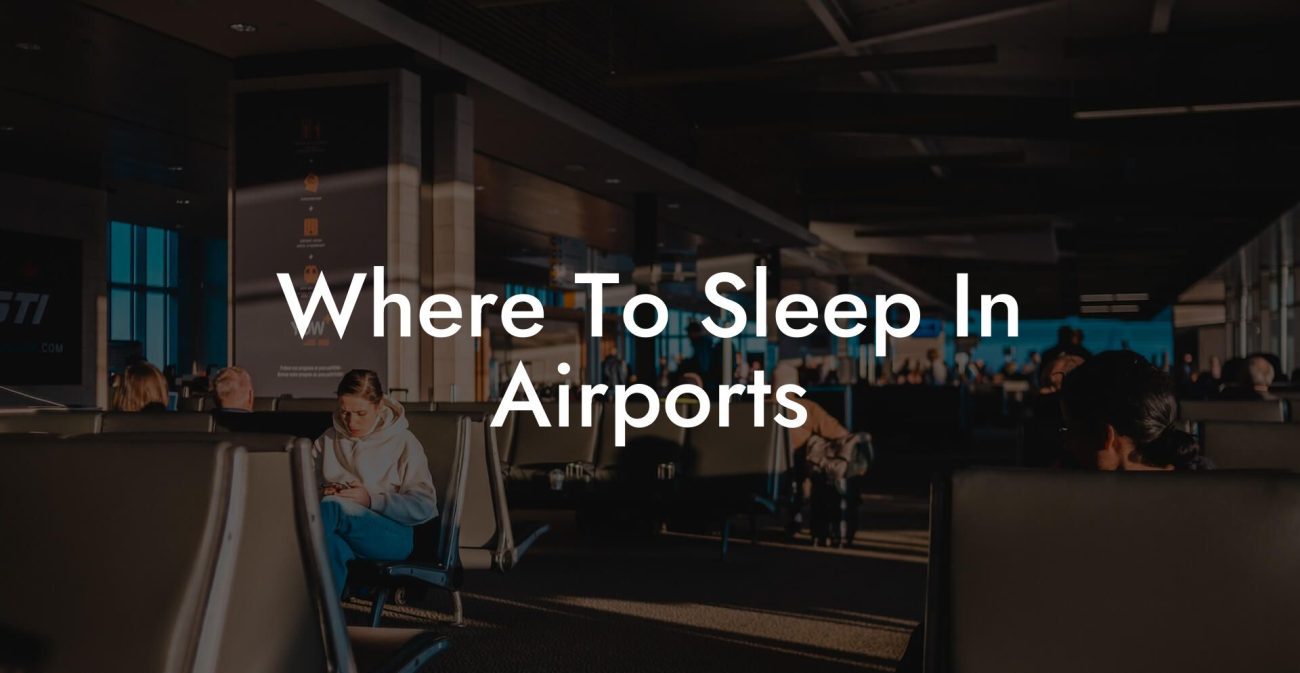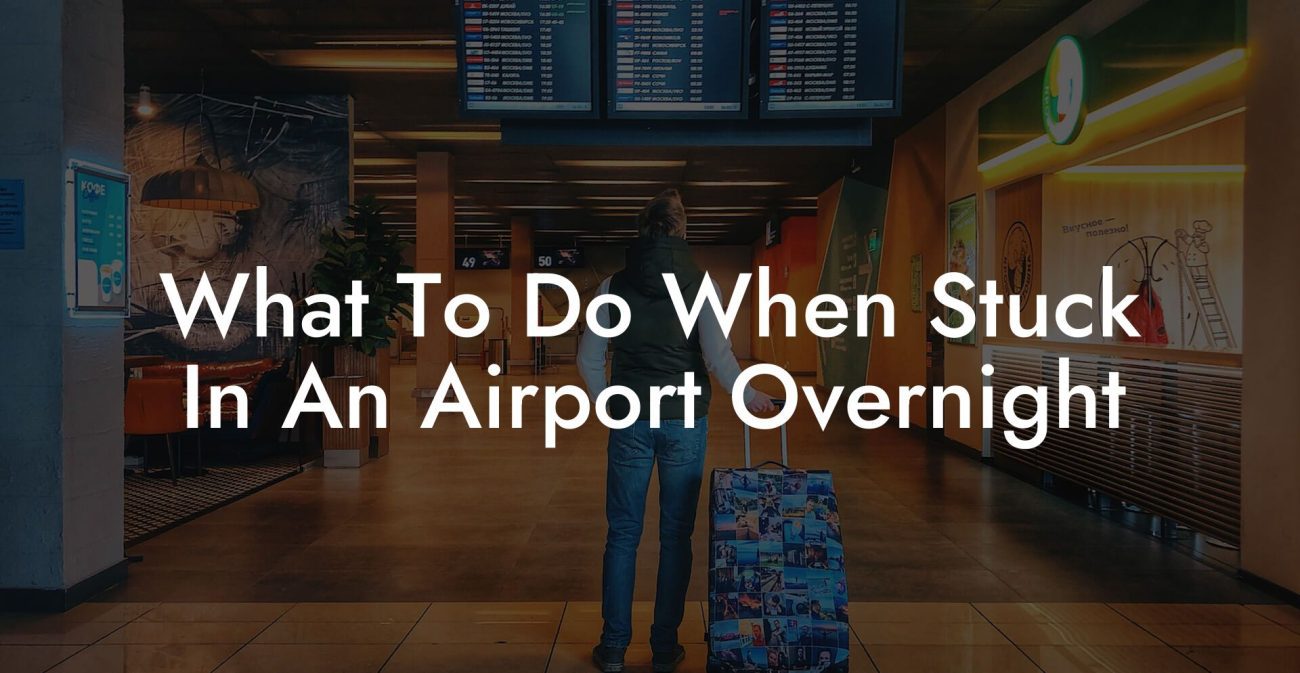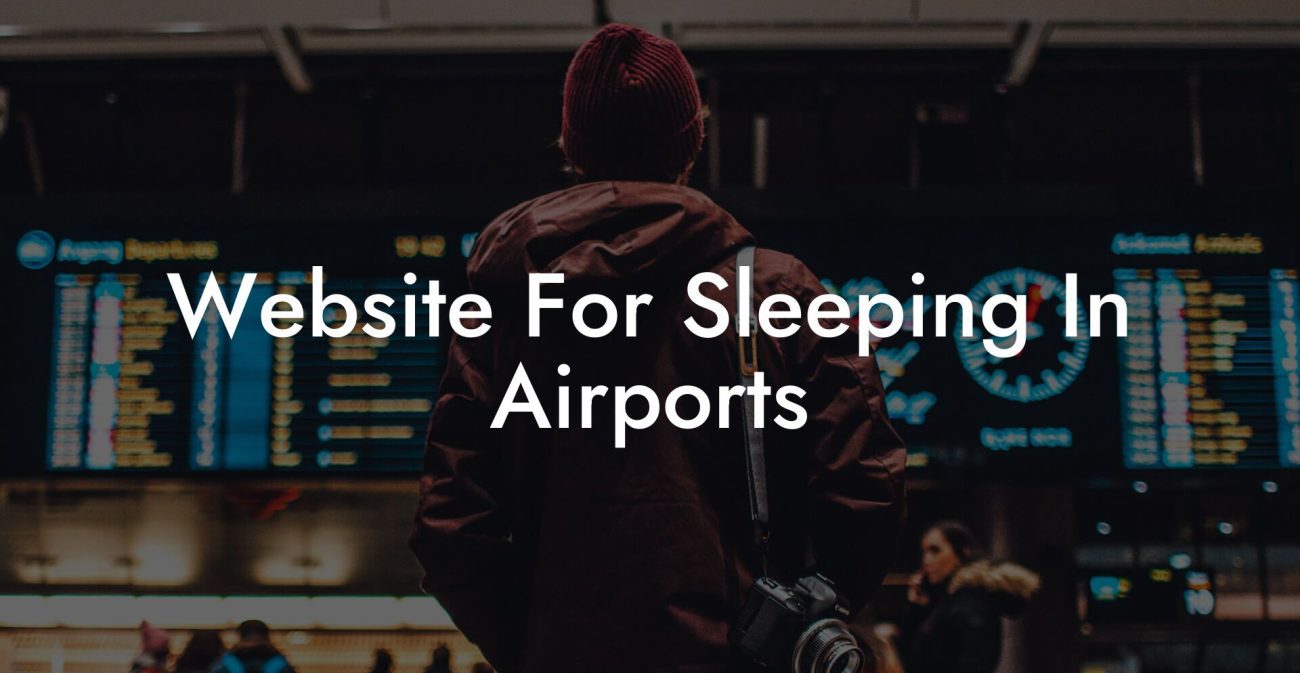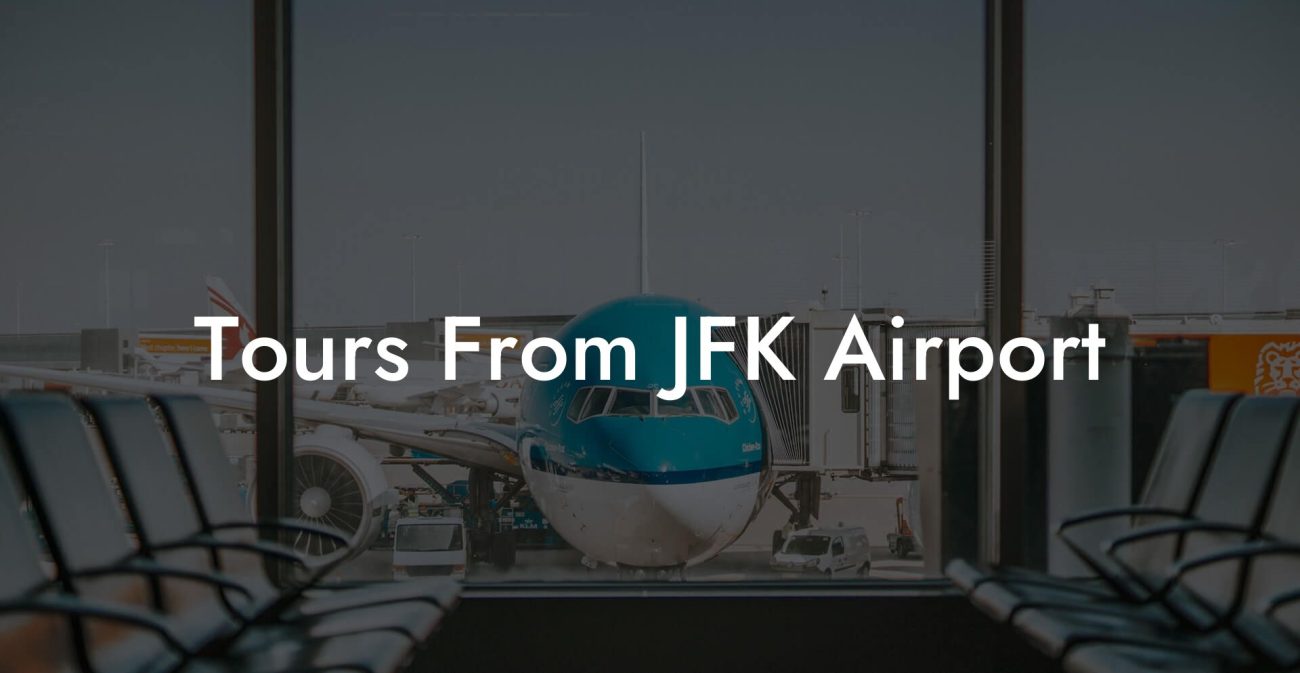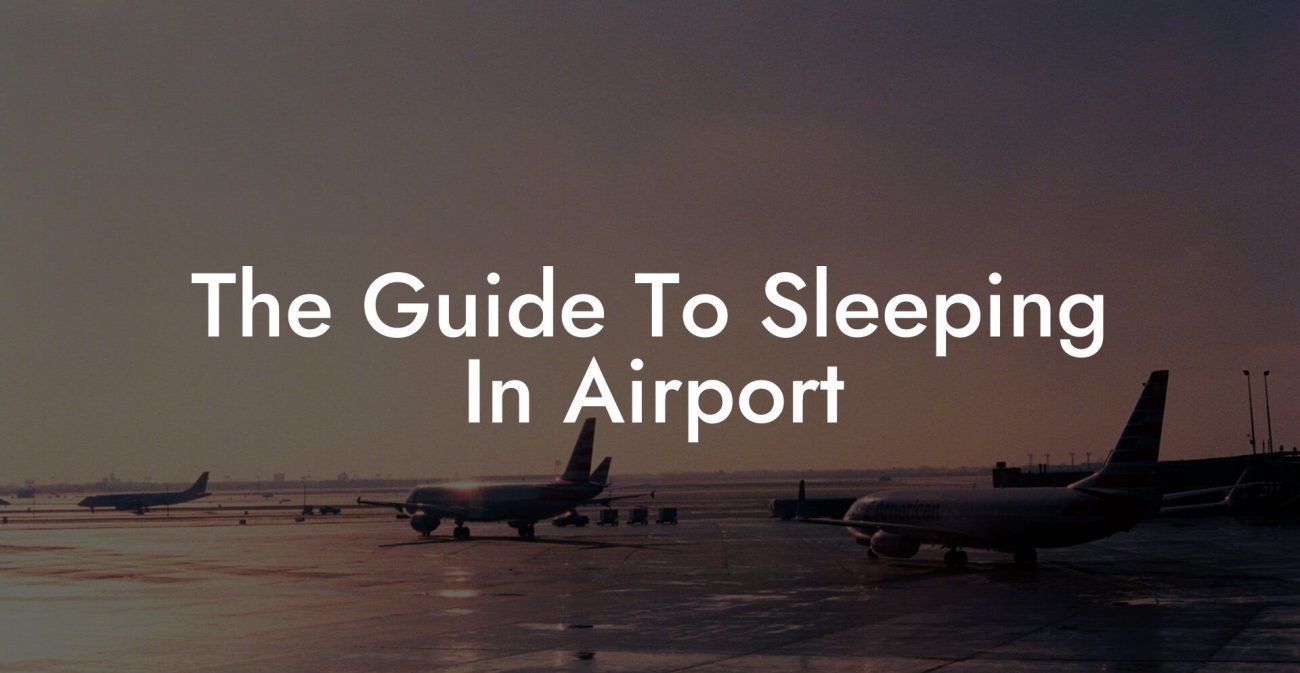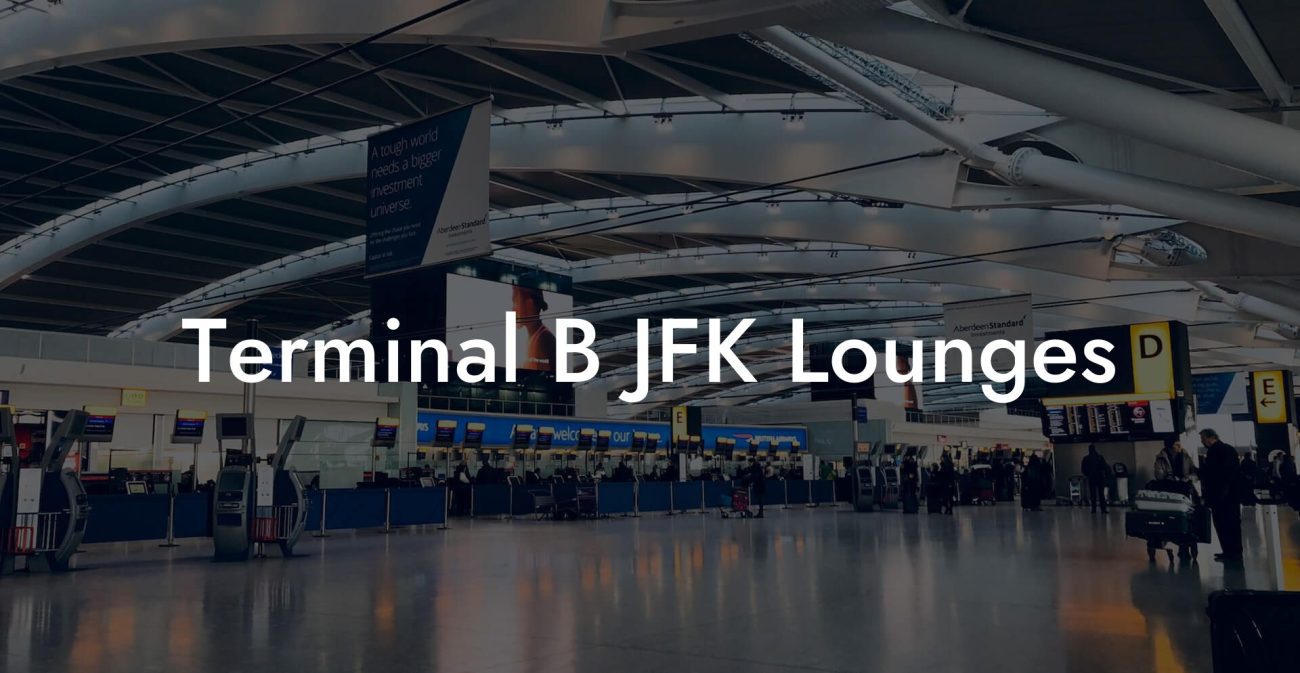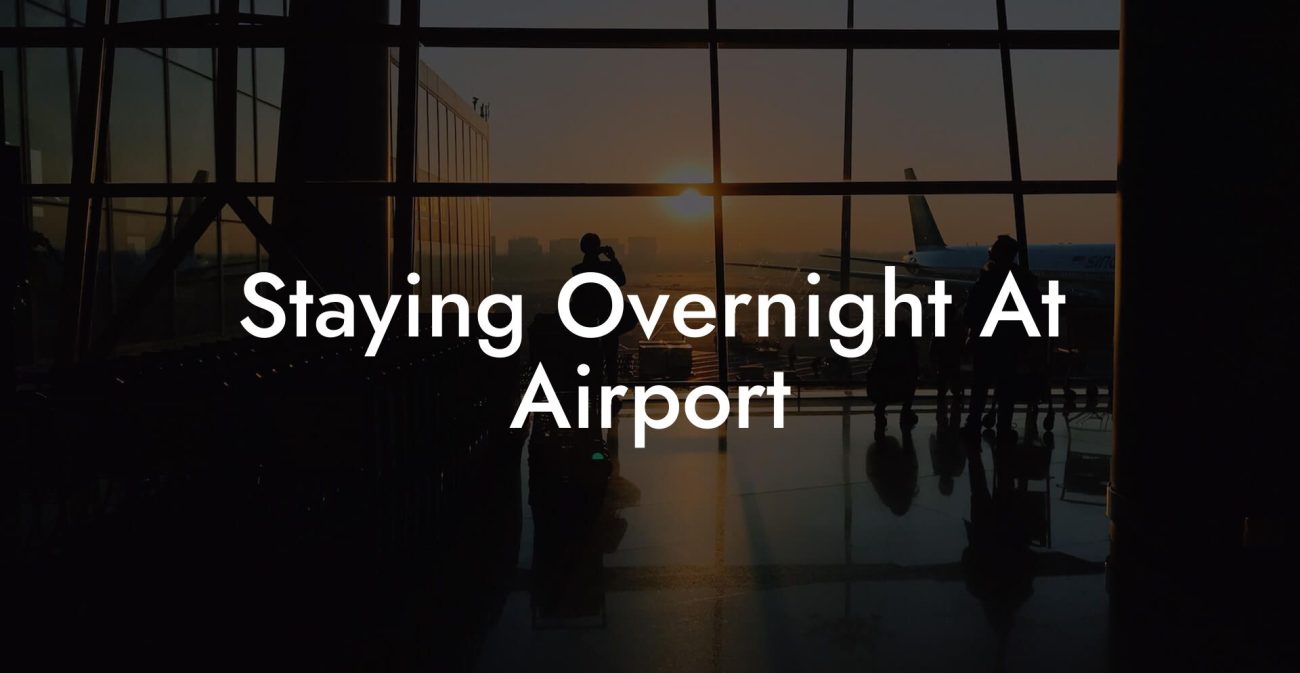Tired of the same old airport hustle and bustle? Ever wondered if you can actually catch some shut-eye between gate announcements and terminal food courts? In a world where travel is as unpredictable as your Wi-Fi connection on a layover, the notion of sleeping in airports has become a full-blown lifestyle trend—especially for savvy Gen-Zers and millennials. Whether you’re the kind of traveler who’s mastered the art of airport napping or you’re curious about giving those airport sleeping pods a try, this definitive guide is here to break down every aspect of catching zzz’s in transit.
Quick Links to Useful Sections
- Unraveling the Airport sleep Phenomenon
- The Evolution of Airport Sleep Culture
- The Rise of Airport Sleeping Pods: Your In-Terminal Sanctuary
- The Pros and Cons of Sleeping in Airports
- What’s Awesome About Sleeping in Airports:
- What’s a Little Less Ideal:
- Mastering the Art of the Airport Nap: Essential Tips & Tricks
- 1. Scout Out the Right Spot
- 2. Pack the Essentials
- 3. Time It Right
- 4. Secure Your Belongings
- 5. Dress Comfortably
- 6. Use Technology Wisely
- Finding the Best Sleeping Spots: A Traveler’s Guide Through the Terminal Maze
- Do Your Research
- Consider Airport Amenities
- Scout Upon Arrival
- Plan for Flexibility
- Safety and Security: How to Sleep Soundly When You’re on the Go
- Stay Visible, But Stay Safe
- Lock It Down
- Blend In With the Crowd
- Inform Someone of Your Plan
- Tech & Comfort: Gadgets to Enhance Your Airport Nap Experience
- Noise-Cancelling Headphones and Earplugs
- Travel Pillows and Blankets
- Sleep Tracking Apps
- Portable Chargers and Power Banks
- The Gen-Z & Millennial Traveler’s Guide to Airport Sleeping Pods
- Innovative Amenities Beyond Sleeping Pods: Rest, Recharge, and Revive
- Innovations and Trends: The Future of Airport Sleep
- Resources and Community Support: Your Next Steps
- FAQ: Your Burning Questions About Airport Sleeping
- Embracing the Terminal Lifestyle: Your Next-Level Travel Hack
- Continuing Your Journey: Final Words Without an Ending
Unraveling the Airport sleep Phenomenon
Once dismissed as an act of last resort, sleeping in airports has evolved into a practical, even stylish, choice for modern travelers. The rise of budget airlines, extended layovers, and round-the-clock flights has pushed many to embrace the idea of turning airport terminals into temporary bedrooms. Today, millions of travelers—especially the young and restless—know that a good airport nap can be the secret ingredient to a smoother journey.
From dodging early morning check-ins to making the most of a layover, our terminal snooze culture is an intersection of necessity and innovation. As you explore this guide, you’ll uncover the hidden reasons why airports are reshaping travel routines, how to maximize your comfort with handy tips, and even where to find those futuristic airport sleeping pods that offer a taste of hotel luxury mid-flight.
In a world where travel stress is high and sleep quality can make or break your adventure, we’re here to redefine what it means to “sleep in airports.” So buckle up—karma, comfort, and quirky hacks await!
The Evolution of Airport Sleep Culture
Airports used to be viewed solely as transit points, but now they’re transforming into vibrant microcosms of modern travel lifestyles. What once was a space of fleeting encounters has morphed into a place where travelers carve out moments of rest amid flights, security lines, and coffee runs. As the need for more flexible travel solutions grows, leaving your luggage behind for a well-deserved nap in an airport terminal is no longer a sign of defeat but one of resourcefulness.
Several factors have contributed to this evolution:
- Budget Travel: With more travelers opting for low-cost carriers, layovers and long waiting periods have become common, necessitating creative solutions for rest.
- Work-Life Integration: Remote working and digital nomad lifestyles mean people are always on the move. Airports serve as impromptu offices and sleeping quarters.
- Technological Advances: The advent of airport sleeping pods and other comfort-enhancing amenities underscores the shift towards blending convenience with quality rest.
The convergence of these trends means that if you’re wondering “Can you sleep in airports?” the answer is an emphatic yes—provided you’re equipped with the right tips, a sense of humor, and an eye for comfort.
The Rise of Airport Sleeping Pods: Your In-Terminal Sanctuary
Enter the era of airport sleeping pods, a revolutionary answer to the question: Can you sleep in airports with style? These sleek, futuristic capsules have rapidly gained popularity among travelers who want an escape from the hard plastic benches and noisy corridors of terminal life. Parking yourself in a sleeping pod almost feels like stumbling into a sci-fi movie—where comfort meets cutting-edge design.
Airport sleeping pods are crafted to offer a private, secure space for travelers to relax, nap, or even catch up on work without being disturbed by the chaotic flow of fellow passengers. Typically, these pods come equipped with:
- Adjustable Lighting: Optimize your environment with customizable lights to recreate the perfect nighttime vibe, even in a bustling terminal.
- Climate Control: Regulate temperature to suit your comfort, regardless of whether you’re flying into a tropical paradise or a frosty winter destination.
- Noise-Cancellation: Some pods offer built-in soundproofing or complimentary white noise to drown out the ceaseless announcements and chatter.
- Privacy: Secure, individual pods ensure you have a personal sanctuary to catch up on rest without the prying eyes of other travelers.
But while these pods provide a high-tech haven, they aren’t the only option. Many airports still offer traditional lounges, comfy seating areas, and even designated nap zones—all designed with exhausted travelers in mind.
The burgeoning popularity of these pods has sparked a broader conversation about how airports can better serve the needs of today’s transient population. The message is clear: if you can sleep in airports, do it in comfort and style.
The Pros and Cons of Sleeping in Airports
Like every travel hack, airport sleep comes with its highlights and hiccups. Understanding both sides of the coin can help you decide whether to snag that extra hour of sleep at a terminal or book a hotel room for a bit more luxury.
What’s Awesome About Sleeping in Airports:
- No Extra Expense: Skip the hotel bill and rest up for free. Perfect for budget travelers and students alike.
- Convenience: Stay literally on the move. Avoid the hassle of transport, luggage storage, or booking delays.
- Networking Opportunities: Random conversations on the terminal bench might lead to exciting travel tips, insider secrets, or even a lifelong friendship.
- High-Tech Comfort Options: From sleeping pods with adjustable climate control to designated quiet zones, modern airports are stepping up their sleep game.
- Flexible Scheduling: Take advantage of odd hours or layovers to recharge without missing a beat in your travel itinerary.
What’s a Little Less Ideal:
- Limited Privacy: Not all airport spaces are created equal—some might expose you to prying eyes and unpredictable passersby.
- Noise and Distractions: Even with noise-cancellation options in sleeping pods, common areas can sometimes disrupt your slumber.
- Comfort Variability: A hardened bench is far from a king-size bed, and not every airport provides the amenities needed for a good night’s sleep.
- Security Risks: With valuable belongings in tow, finding a secure place to sleep becomes paramount. Awareness and a cautious mindset are key.
Balancing these pros and cons means being a savvy traveler—a master of airport hacks, a connoisseur of last-minute comfort, and someone who isn’t afraid to improvise when necessary.
Mastering the Art of the Airport Nap: Essential Tips & Tricks
If you’re planning on turning airport terminals into your next slumber sanctuary, you’ll want to arm yourself with a treasure trove of tips to optimize your snooze. After all, a little planning goes a long way when trying to shut your eyes in a high-traffic area.
1. Scout Out the Right Spot
The key to a great airport nap is finding the perfect corner or designated sleeping area. Research your departure gate in advance using airport maps and reviews to locate quiet zones, lounge areas, or even that elusive sleeping pod.
Look for spots away from heavy foot traffic, ideally with a degree of privacy and comfortable seating. Some airports even have hidden gems—areas often overlooked by the regular crowd that offer a haven for weary travelers.
2. Pack the Essentials
Your carry-on should double as your sleep kit. Stock up on noise-cancelling headphones or earplugs, an eye mask, a travel blanket, and a neck pillow. For those who value ultimate comfort, consider an inflatable mattress or a padded sleeping mat, especially if you’re planning on sleeping on the floor.
Also, don’t forget about your hygiene essentials—a few travel-size toiletries and a change of clothes can make all the difference between a rushed nap and a refreshing sleep session.
3. Time It Right
The best airport naps are those that don’t leave you groggy upon arrival. Avoid oversleeping by setting an alarm on your phone or using a travel app that notifies you of boarding times and gate changes. Short, power naps of 20-30 minutes can recharge your batteries without making you feel like you’ve been robbed of an entire night’s sleep.
4. Secure Your Belongings
Security is paramount when you’re turning an airport bench into your bed. Keep your valuables close—invest in a travel lock, use a money belt, or simply loop your bag around your leg under your seat. If you’re catching some sleep in a public area, never leave your belongings unattended. Consider using luggage straps or portable safes for added protection.
5. Dress Comfortably
Comfort is king when it comes to airport naps. Opt for loose, breathable clothing that won’t restrict your movement as you try to doze off. Layers are a smart choice, as airports can be unpredictably chilly or warm. Slip into something cozy, and you might just find that the terminal becomes your personal relaxation zone.
6. Use Technology Wisely
Leverage your smartphone and travel apps to monitor conditions at the airport. Some apps provide real-time updates on lounge occupancy, quiet zones, and even sleeping pod availability. Additionally, a white-noise app or a meditation playlist can help drown out the ambient noise and provide the perfect backdrop for a peaceful nap.
Mastering these tricks turns the daunting task of sleeping in an airport into an empowering skill—a survival kit for modern nomads who know that rest is an essential part of travel.
Finding the Best Sleeping Spots: A Traveler’s Guide Through the Terminal Maze
Every airport has its own vibe, layout, and hidden corners perfect for catching some zzz’s. To help you navigate the terminal labyrinth, here are strategies to uncover the ideal napping nook.
Do Your Research
Before you even set foot in the airport, spend some time browsing travel forums, YouTube reviews, and social media posts from fellow travelers who have mastered the art of airport sleeping. Sites like The Points Guy, Reddit, and even Instagram can provide real-time updates on the best spots in specific airports.
Consider Airport Amenities
Major hubs like Singapore Changi, Doha’s Hamad International, and Amsterdam Schiphol are notorious for their comfortable lounges, quiet zones, and—even revolutionary—sleeping pods. Even if you’re flying through a smaller airport, look for lounges that offer day passes or quiet rest areas. Always check if there are designated nap zones or “sleep lounges” advertised on the airport’s website.
Scout Upon Arrival
Sometimes, nothing beats the classic method of simply exploring the terminal. Take a walk, ask airport staff for recommendations, or even chat with fellow travelers. Word-of-mouth insights can lead you to the softest seats, the quietest corners, or an under-the-radar lounge that many overlook.
Plan for Flexibility
Airports are dynamic spaces. What’s quiet one minute might become crowded the next. Keep your plans flexible by having multiple potential nap spots in mind. If your first choice turns out to be too noisy, you can seamlessly shift to another area without missing a beat.
Safety and Security: How to Sleep Soundly When You’re on the Go
While the thrill of sleeping in an airport can be liberating, it’s vital to keep your safety and security at the forefront. Let’s address some common concerns and strategies to ensure that you not only sleep well but also stay secure.
Stay Visible, But Stay Safe
It’s essential to remain aware of your surroundings. Avoid secluded areas in poorly lit terminals, especially during late-night hours. Instead, seek out designated rest zones that offer both relative privacy and security through increased foot traffic.
Lock It Down
Use your travel accessories to protect your belongings. A compact travel lock, anti-theft backpack, or even discreetly fastening your carry-on to a fixed object can deter any potential mischief. Keep only the essentials with you, and store bulkier items in locked luggage if possible.
Blend In With the Crowd
The more you look like just another traveler, the less likely you’ll draw unwanted attention. Dress casually, and avoid flaunting expensive gadgets or jewelry. A low profile is your best defense when you’re sleeping in a public area.
Inform Someone of Your Plan
Let a friend or family member know your travel plans and your intended airport sleeping spot. Regular check-ins via text or phone can be a great way to ensure that someone knows where you are, especially during long layovers.
By following these security tips, you can confidently embrace the airport sleep lifestyle without compromising on safety.
Tech & Comfort: Gadgets to Enhance Your Airport Nap Experience
In our digital age, technology plays a pivotal role in enhancing even the simplest aspects of daily life, including airport sleeping. From noise-cancelling headphones to innovative sleep-tracking apps, the modern traveler is never without a gadget to improve their sleep quality.
Noise-Cancelling Headphones and Earplugs
Block out the droning hum of airport announcements, chatter, and the occasional PA system malfunction with noise-cancelling headphones. If you prefer something more low-tech, a pair of high-quality earplugs can work wonders.
Travel Pillows and Blankets
Invest in a supportive neck pillow designed specifically for travel. Many of these pillows come with built-in memory foam technology, adjusting to your head and neck for optimal support. A compact travel blanket can also add a layer of coziness and warmth when the air conditioning is cranked up.
Sleep Tracking Apps
Curious about the quality of your airport nap? Several sleep tracking apps can monitor your sleep cycles, even when you’re on the go. Some apps provide relaxation exercises, ambient soundscapes, or guided meditation sessions to help ease you into a deep slumber.
Portable Chargers and Power Banks
After a long day of travel, the last thing you need is your device dying mid-nap. A portable charger ensures that you can keep your gadgets powered, whether it’s for monitoring your sleep or catching up on your favorite shows during a long layover.
Embracing these tech tools not only enhances your comfort but also transforms your airport sleep experience into something far more enjoyable, making every minute of rest count.
The Gen-Z & Millennial Traveler’s Guide to Airport Sleeping Pods
For the modern traveler, airport sleeping pods are more than a luxury—they’re a necessity. Tailored to the fast-paced lifestyles of Gen-Zers and millennials, these pods blend functionality with modern aesthetics, meeting high expectations for both comfort and design.
Imagine stepping into a sleek, enclosed pod that offers everything from cushioned mattresses to USB charging ports, ambient lighting, and even privacy curtains. These amenities are designed specifically for those who refuse to compromise on sleep quality, even when the world around them is in perpetual motion.
Many airports across the globe are now investing in these futuristic pods as part of their upgrade, transforming the traditional “wait” area into a mini oasis for rest, work, and relaxation. For dedicated digital nomads and frequent flyers, these sleep capsules represent a new era of travel, where rest is not forced into the cracks of a hectic schedule but is instead an integral, celebrated part of the journey.
Innovative Amenities Beyond Sleeping Pods: Rest, Recharge, and Revive
While airport sleeping pods are making headlines, they’re just one piece of a broader ecosystem of amenities designed to help you recharge on the go. Many airports are evolving to meet the diverse needs of their passengers in creative ways.
Consider lounges that offer comfortable recliners, massage chairs, and even shower facilities—each tailored to make a long layover feel like a mini-vacation. Some airports now have quiet zones with limited Wi-Fi and subdued lighting to create a peaceful environment amidst the terminal madness. For the wellness-focused traveler, yoga rooms and meditation areas provide a serene getaway, helping you recalibrate both mind and body.
These amenities reflect a larger shift in airport culture—from transit hubs to multi-functional spaces where rest and relaxation are prioritized. Whether you’re relying on a high-tech sleeping pod or a plush lounge chair, the message is clear: modern travelers deserve comfort, convenience, and a good night’s sleep, no matter where their journey takes them.
Innovations and Trends: The Future of Airport Sleep
The question “Can you sleep in airports?” is receiving a resounding yes, and the future looks brighter than ever for those in need of a quick nap. Technological advancements continue to redefine airport accommodations, with new innovations on the horizon that promise enhanced comfort and efficiency.
Expect to see more integrated smart technologies such as sleep-tracking sensors built directly into lounge furniture, biometric security for personal sleeping pods, and even AI-driven apps that suggest the best nap locations based on current terminal conditions. Airports are also exploring sustainable design methods that incorporate eco-friendly materials and energy-efficient systems in their sleep zones, aligning with the values of environmentally conscious travelers.
As these trends take hold, the airport of tomorrow will be a far cry from the cold, sterile spaces of the past. Instead, they will be dynamic hubs of relaxation and innovation—a welcome respite for the modern nomad who embraces the journey as much as the destination.
Resources and Community Support: Your Next Steps
Ready to transform your travel experience? The key to mastering airport sleep is accessing the right resources and connecting with a community of like-minded adventurers. Start by exploring travel blogs, social media groups, and forums where fellow travelers share tips and reviews about the best airports for napping, the latest sleeping pod innovations, and honest evaluations of airport comfort.
Many websites offer comprehensive airport guides, complete with maps of quiet zones, user-generated ratings of sleeping areas, and advice on how to optimize your layover. Engage with local travel apps that integrate real-time information about airport amenities and sleeping conditions. From digital nomads to weekend wanderers, the community of airport sleepers is vibrant, resourceful, and always on the lookout for the next big tip.
Additionally, consider joining loyalty programs and travel clubs that offer perks such as lounge access, discounts on sleeping pods, and exclusive tips from seasoned travelers. These networks provide not only tangible benefits but also a sense of camaraderie among those who know that every journey is a unique adventure waiting to unfold.
Embrace these resources, join the conversation, and turn those long hours at the terminal into an opportunity for rest, rejuvenation, and connection. Your journey to mastering the art of airport sleep is just getting started!
FAQ: Your Burning Questions About Airport Sleeping
We know there’s a lot to consider when it comes to sleeping in airports. Here are some of the most frequently asked questions that can help you navigate your terminal snooze journey.
1. Can you really sleep in any airport?
Yes, you can, but not all airports are created equal. Larger international hubs tend to have dedicated rest zones, sleeping pods, and lounges, while smaller airports might offer fewer amenities.
2. Are airport sleeping pods safe and secure?
Absolutely. Most sleeping pods come with enhanced security features like personalized access, noise reduction, and climate control. However, always keep your valuables secure and be aware of your surroundings.
3. How do I find the best spot to sleep in an airport?
Do your research through travel forums, review websites, and social media. Look for quiet zones, designated nap areas, or even the latest sleeping pods that are trending in major hubs.
4. What essentials should I pack for an airport nap?
Pack noise-cancelling headphones, an eye mask, a travel pillow, and a lightweight blanket. Don’t forget a portable charger to keep your devices powered and ready.
5. How can I avoid feeling groggy after a short nap?
Aim for power naps of 20-30 minutes to refresh without falling into deep sleep. Set an alarm, and try to follow a nightly sleep routine even on the go to maintain consistency.
6. Do airport lounges offer better sleep options?
Yes, many airport lounges offer comfortable seating, recliners, and even quiet rooms specifically designed for rest. Some lounges provide day passes, so it can be worth investing in one during long layovers.
7. What are some useful tech gadgets for airport sleeping?
Noise-cancelling headphones, sleep tracking apps, wireless chargers, and travel pillows with built-in support are all popular among modern travelers looking to optimize their airport sleep experience.
8. Is it legal and allowed to sleep in airports?
Generally, yes—airports welcome travelers catching some sleep. However, always check local rules and regulations, as policies can vary from one airport to another.
9. Can sleeping in airports improve my travel experience?
Absolutely. A well-planned airport nap can revitalize you, reduce stress, and even help you manage jet lag, turning layovers into productive downtime.
10. How do I maintain my health while sleeping in an airport?
Stay hydrated, keep your surroundings clean, and be mindful of your posture. Regular naps can be a part of a healthy travel regimen when combined with proper diet and movement.
Embracing the Terminal Lifestyle: Your Next-Level Travel Hack
The art of sleeping in airports isn’t just about catching a few extra minutes of rest—it’s about transforming the way you travel. With the right mix of strategy, the newest gadgets, and an open mind to unconventional solutions, you can turn even the busiest terminal into your personal haven.
Picture this: instead of dreading a long layover, you’re recharging in a sleek, modern sleeping pod, sipping on a fresh cup of artisan coffee from a nearby kiosk, while your smartphone buzzes softly with notifications from your travel app, ensuring you never miss a flight update. You’re not just surviving your travel schedule; you’re thriving and setting trends.
For the adventurous, the digital nomad, or the tired globetrotter, every layover becomes an opportunity to rest, reflect, and reinvent the boundaries of conventional travel. By integrating these tips with a dash of humor and a pinch of tech-savvy ingenuity, your terminal experience transforms from a mundane waiting game into a celebration of modern travel ingenuity.
Remember, every travel hack is a journey in itself. As you embrace the art of sleeping in airports, you join an ever-growing community of people who believe that comfort and adventure can coexist—even in the midst of a busy terminal.
The next time you’re faced with a long layover, think twice before lamenting the delay. Instead, gear up, get comfortable, and let the airport be both your transit hub and your personal retreat. After all, sleeping in airports isn’t just a fallback option—it’s a travel lifestyle that’s here to stay.
Continuing Your Journey: Final Words Without an Ending
While we could sum up everything you need to know about airport napping in a neat little package, the truth is that each journey is unique. Whether you’re marveling at the innovation of sleeping pods, scouting for that perfectly secluded corner, or tinkering with travel gadgets to tweak your rest, the world of airport sleep is as dynamic as it is exciting.
The story of every traveler is written in moments of rest and bursts of adventure. So, as you set forth on your next journey, remember that the terminal isn’t just a pit stop—it’s a space of possibility, creativity, and much-needed rest. Sleep in airports if you must; do it with style, responsibility, and an open heart ready to embrace every twist and turn of your travel tale.
Whether you’re a seasoned airport napper or just beginning your exploration of terminal relaxation, this guide serves as your trusty companion. The adventure is out there, and sometimes, all you need is a quiet corner, the perfect gadget, and a mindset tuned for a little unexpected luxury in transit.
So go ahead—sleep in airports, explore every new amenity, and let your journey be as restful as it is remarkable. The terminal awaits your next move, and with these insights, you’re more than ready to make your mark in this evolving travel culture.
Useful Interruption: Dive deeper into the world of airport sleeping guides with our most popular sections. If there is anything you think is missing or anything you would love for us to write about, just give us a shout.
- General Airport Sleeping Guides
- Travel Gear & Equipment Recommendations
- Regional and Airport-Specific Guides
- Airport Sleeping Pods & Reviews
- Health, Safety, and Comfort Tips for Airport Sleepers
Last week, I decided to try the world-famous "airport sleepover" experience. Imagine this: I'm lying on a bench in Terminal C, surrounded by suitcases that have seen more of the world than I ever will, and a PA system that sounds like a karaoke machine on a sugar rush. I pull out my travel pillow—which, by the way, is more like a sad deflated balloon—and declare, "Tonight, I’m the king of this terminal!"
Soon enough, fellow travelers become my unexpected audience. One guy, fresh off a red-eye, whispers, "Hey, do you think if we sleep long enough, we can catch our flight in our dreams?" I reply, "Sure, and maybe I'll even get an upgrade to first-class in my nap!" The airport lights flicker like a disco ball, and every time someone announces a delayed departure, it’s like a punchline to our impromptu stand-up routine.
As I finally drift off, I dream of a world where boarding passes are like VIP tickets to the best sleepover party ever—a party where the only baggage is the laughter you carry with you. Waking up, I realize the airport is still the same, but I now hold the honorary title of "Terminal Comedian," a title I wear with as much pride as my permanently mismatched socks!

